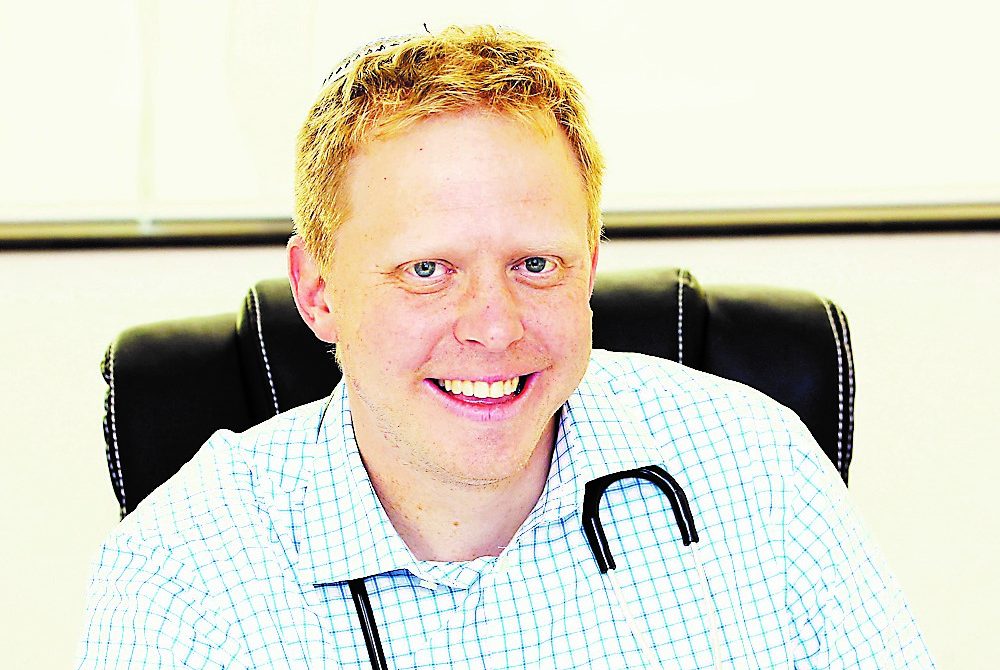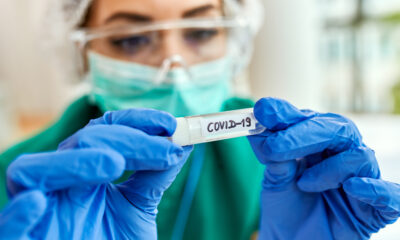
OpEds

Birth pangs of the COVID-19 vaccine
Published
3 years agoon
Only 21% of Israelis reported that they would agree to be vaccinated against COVID-19 in the first round of a vaccine rollout, according to a study recently released by the Israel Democracy Institute.
Scepticism prevails in spite of a wave of excitement that has swept the world as the Pfizer/BioNTech alliance, a multinational pharmaceutical alliance, and Moderna, an American biotechnology company, released their phase-3 vaccine results, which have shown their vaccines to be more than 90% efficacious against COVID-19.
I’m, therefore, not surprised to hear this week from several of my own patients living in South Africa, where the public is perhaps far less educated about vaccine development than in Israel, that should the opportunity arise, they certainly wouldn’t volunteer to be pioneers to receive a COVID-19 vaccine in early 2021.
One patient even asked for my confirmation that it is, indeed, a rumour that the COVID-19 vaccine rollout is Bill Gates’ plot to get microchips implanted into millions of people. Interestingly, a YouGov poll of 1 640 Americans in May 2020 reported that 28% of Americans believe this rumour to be true.
The COVID-19 vaccine involves injecting viral RNA (single strain DNA) into the body. This has led to the misunderstanding that the injected RNA alters the body’s DNA itself. “Don’t inject the COVID-19 vaccine. It alters your DNA” was a tweet that came from Emerald Robinson, a White House correspondent, earlier in the year. Nothing could be more inaccurate. The Pfizer company spokesman, Andrew Widger, has made it clear that the vaccine “doesn’t alter the DNA sequence of a human body. It only presents the body with the instructions to build immunity.”
Ambivalence exists because of the novelty of this vaccine. It’s true that there has never been a messenger RNA vaccine that has been successful before. Messenger RNA is genetic material that gives the body instructions to produce proteins that are the same proteins present on the SARS-COV-2 virus surface. This enables swift destruction of the SARS-COV-2 virus should it present in the future.
Even though this is, indeed, new technology, there’s no reason to shy away from it. All vaccines go through rigorous safety checks before they are tested on people. It’s the result of unprecedented investment in this unique technology that we finally have measurable results in this exciting space.
How have the Pfizer and Moderna vaccines revolutionised the COVID-19 vaccine horizon in the past two weeks? First, both vaccines have released phase 3 results. Phase 3 is the last phase of testing before a vaccine’s details are submitted for release on the open market. It involves reproducing the safety and effectiveness of stage 2 on a much larger scale.
Original predictions pitched the efficacy of the COVID-19 vaccine at 50%-60%, optimistically at 70%. The Pfizer vaccine showed an overwhelming 90% efficacy in 43 000 participants, with no safety concerns. The numbers released by the Moderna vaccine even topped these results, with a 94% efficacy amongst 30 000 participants. In simple terms, the world has two vaccines that really work.
The Astra-Zeneca Oxford University vaccine trial, in which South Africa has been privileged to take part, will release its results soon, as will the Janssen trial in the United Kingdom. Reliving the experience of the 1960s space race, days after the Pfizer results were released, Russia quickly rushed to release the results of its controversial phase 3 “Sputnik V” vaccine trial. It, too, claimed 92% efficacy.
The controversy lies in the small relative sample size and the lack of transparency in the study design. Nevertheless, even here, the promise of success is high.
Will the average South African be booking a slot with his GP or pharmacist in early 2021 and taking off his mask in celebration of new-found immunity against COVID-19? I discussed this question with Professor Barry Schoub, who now heads up the Ministerial Advisory Committee to the government on the COVID-19 vaccine. Not so fast, unfortunately. There are significant obstacles that will prevent the man on the street from a quick COVID-19 immunity shield in South Africa.
Both the Pfizer and Moderna vaccines make use of a lipid particle to enclose the viral RNA to protect it from enzymes in the blood that would otherwise destroy it. The lipid (nano) particle is stable only at exceptionally low temperatures. Pfizer’s vaccine requires storage of -70 degrees centigrade, and Moderna seems a little warmer to success here, with stability at -20C.
Schoub remarks how a recent study demonstrated that 40% of normal fridge vaccines (stored at 4C) lost their efficacy due to unavoidable disruption in the cold chains from logistics challenges in South Africa. The National Institute for Communicable Diseases and Groote Schuur Hospital are perhaps the only institutions capable of freezing vaccines at -70C.
Professor Schoub, however, remains optimistic that new advances in technology will eventually enable normal fridge temperature storage, even with the COVID-19 vaccine.
Another real obstacle that will prevent the average South African from receiving a vaccine soon is the swiftness with which first-world countries have snapped up orders for millions of vaccines. The South African government has been slow to the mark and financially disempowered. It will take months to catch up.
How excited should the man on the street be? Very, I believe.
The speed at which vaccine development is taking place is unprecedented. The efficacy of the vaccines is impressive. The safety profile of the vaccines is remarkable. The synergy of societies and countries working together to vaccinate the world hasn’t been seen since the times of smallpox.
We will surmount the obstacles. But in the meantime, we’ll have to rely on our trusted masks and sanitisers, and eagerly keep our eyes on the horizon.
- Dr Daniel Israel is a family practitioner in Johannesburg.










